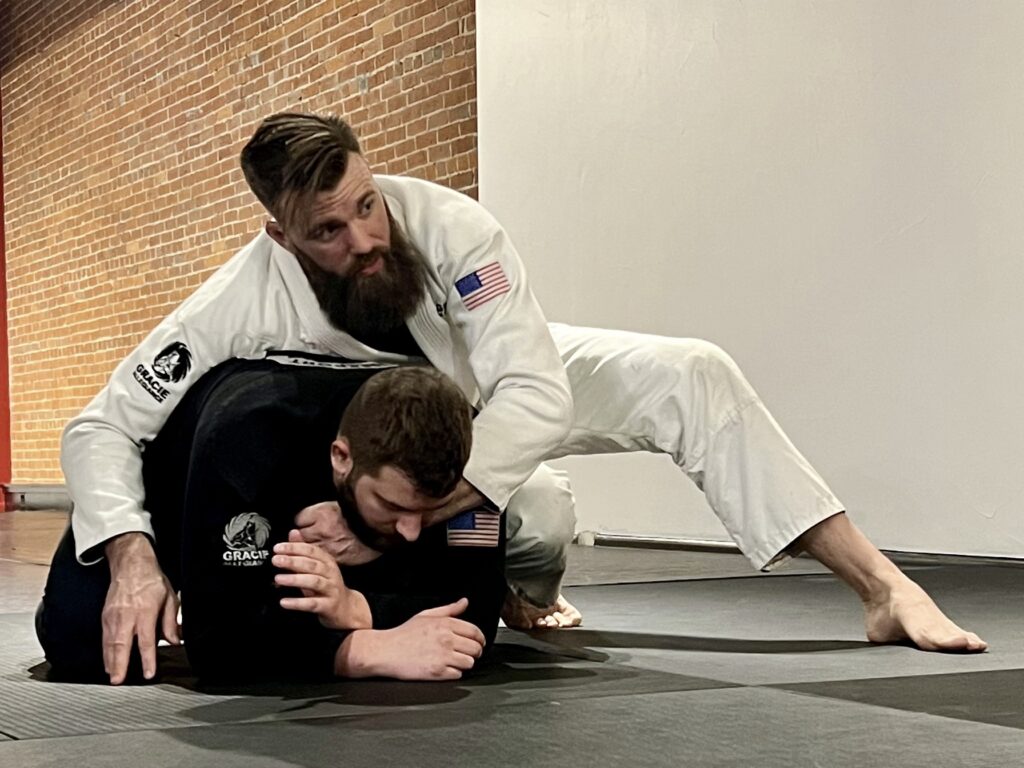Call or Text: 815-200-8818


Free Trial Membership
Jiu-Jitsu is a grappling martial art used for self-defense and sport that focuses on ground fighting and submission techniques.
The objective of Jiu-Jitsu is to gain a dominant position to control and submit your opponent, following a systematic process:
- Defend
- Escape
- Control
- Submit
Jiu-Jitsu for Self-Defense
Most fights start on the feet; however, most end up on the ground. That is why Jiu-Jitsu is such an effective martial art for self-defense.
When you know how to operate on the ground, you gain a substantial advantage over an untrained person. Knowing Jiu-Jitsu gives you an unfair advantage in a street fight and keeps you safe because of your ability to defend and neutralize threats.
Jiu-Jitsu for Sport
Jiu-Jitsu has become a wildly popular combat sport that provides practitioners of all ages and abilities opportunities to compete. In a Jiu-Jitsu competition, you compete against opponents of the same age, sex, weight, and belt level, which means you are effectively competing against yourself.
Gi vs. No-Gi
Gi Jiu-Jitsu involves a traditional martial arts uniform consisting of a jacket, pants, and a belt. No-Gi Jiu-Jitsu is a less formal style that involves a uniform consisting of shorts and a t-shirt or rash guard. Think of it as “Winter Jiu-Jitsu” and “Summer Jiu-Jitsu.” Both are valuable and must be developed to be a well-rounded martial artist.
At Freeport Martial Arts, we expect our students to gain proficiency in both Gi and No-Gi Jiu-Jitsu. Ultimately, you must carry your belt with or without a gi.
Jiu-Jitsu Belt System
Freeport Martial Arts follows the graduation system outlined by the International Brazilian Jiu-Jitsu Federation (IBJJF). Adults ages 16 and older follow a progression of five belt colors:
- White
- Blue
- Purple
- Brown
- Black
Regardless of a student’s martial arts background, all students begin their Jiu-Jitsu journey as a white belt and progress through belts as they develop their knowledge, skills, and abilities. Students can expect to spend two to four years at each belt level, earning their black belt in an average of 10 to 15 years.